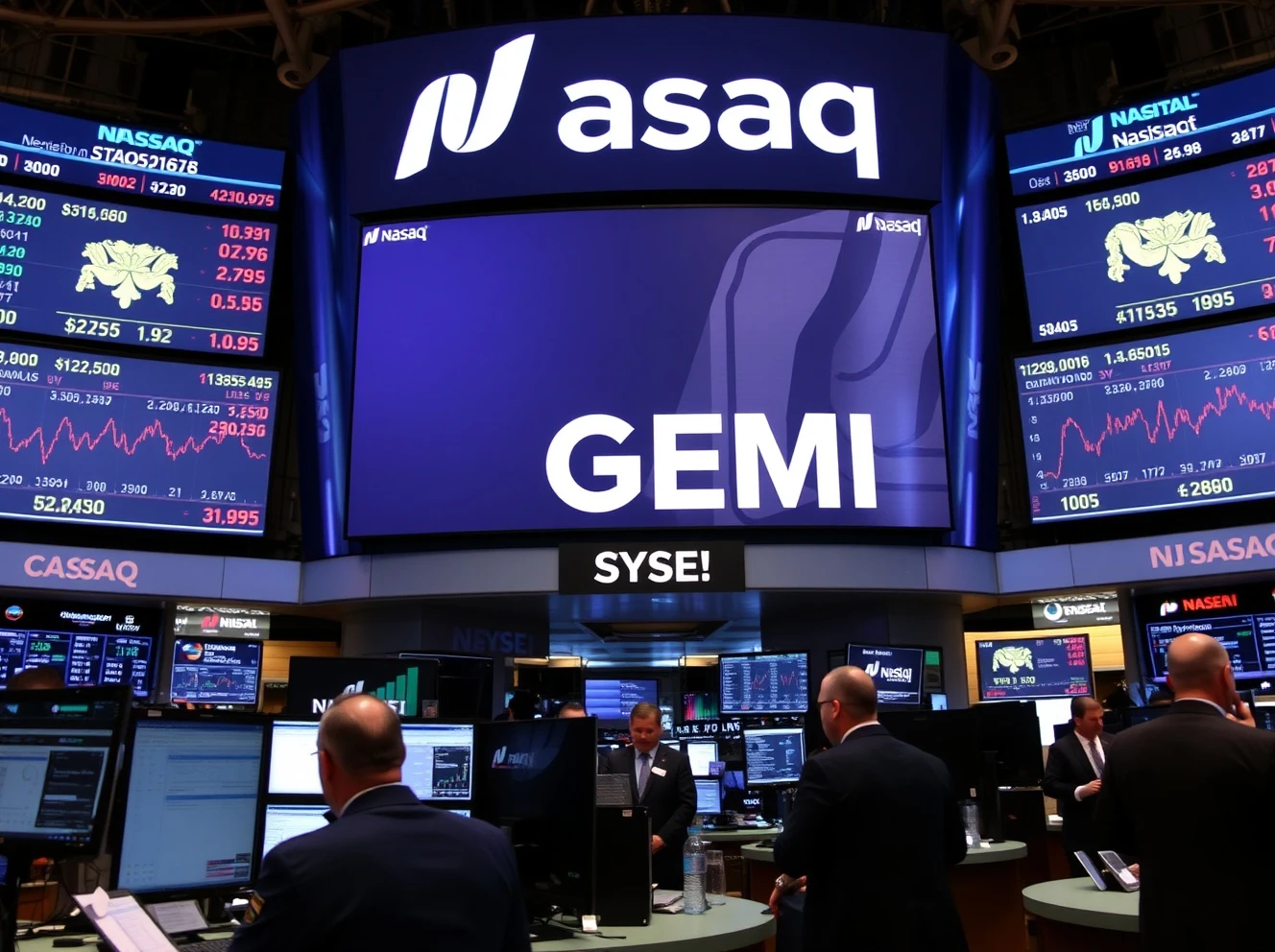The cryptocurrency world witnessed an extraordinary financial milestone today as Gemini’s IPO exploded onto the Nasdaq with unprecedented investor enthusiasm. Gemini Space Station, the pioneering crypto exchange founded by Cameron and Tyler Winklevoss, made its spectacular market debut under the symbol GEMI, capturing overwhelming attention from institutional and retail investors alike.
Gemini IPO Shatters Expectations with Massive Demand
The Gemini IPO pricing significantly exceeded initial projections, settling at $28 per share compared to the expected $24-26 range. This aggressive pricing strategy reflected immense market confidence. Moreover, demand for shares surpassed available supply by an astonishing 20 times, creating one of the most oversubscribed offerings in recent memory. Consequently, the company raised $425 million through the sale of 15.1 million Class A shares.
Strategic Nasdaq Investment Boosts Gemini IPO Credibility
Nasdaq’s $50 million private investment significantly strengthened the Gemini IPO’s market position. This strategic move demonstrated institutional confidence in Gemini’s long-term vision. Additionally, the exchange’s backing provided crucial validation amid ongoing regulatory uncertainties within the crypto sector. The investment also highlighted Nasdaq’s commitment to supporting innovative financial technology companies.
Market Valuation and Competitive Positioning
Gemini’s market capitalization reached approximately $3.3 billion following its successful public debut. This valuation places the company among notable crypto players like Circle (CRCL) and Bullish (BLSH). However, Gemini faces substantial competition from established giants including Coinbase and Binance. Despite this challenge, the company’s regulatory compliance and brand reputation position it uniquely within the evolving digital asset landscape.
Tokenization and Payment Expansion Strategy
Beyond traditional exchange services, Gemini’s leadership emphasizes ambitious plans for asset tokenization and payment solutions. The platform already offers a crypto rewards credit card and maintains its proprietary stablecoin. Furthermore, the company identifies significant growth potential in tokenized assets and digital payment infrastructure. This strategic diversification aims to reduce dependence on trading revenue volatility while expanding their consumer base beyond experienced traders.
Industry Implications and Future Outlook
The successful Gemini IPO signals renewed institutional interest in cryptocurrency enterprises despite regulatory challenges. This development potentially paves the way for other crypto companies considering public offerings. However, market participants remain cautious about sustainability given the sector’s inherent volatility. The coming quarters will reveal whether Gemini can maintain its impressive market momentum while navigating complex regulatory environments and intensifying competition.
Frequently Asked Questions
What was the final pricing for the Gemini IPO?
The Gemini IPO priced at $28 per share, exceeding the initial $24-26 projected range.
How much did Gemini raise through its public offering?
The company raised $425 million by selling 15.1 million Class A shares to investors.
What is Gemini’s market valuation after the IPO?
Gemini achieved a market capitalization of approximately $3.3 billion following its Nasdaq debut.
Why did Nasdaq invest in Gemini’s IPO?
Nasdaq made a $50 million private investment, demonstrating institutional confidence and strategic validation of Gemini’s business model.
How does Gemini plan to differentiate from competitors?
The company focuses on asset tokenization, payment solutions, and regulatory compliance to distinguish itself from larger exchanges.
What does the oversubscription indicate about market sentiment?
The 20x oversubscription reveals strong investor confidence in cryptocurrency companies despite ongoing regulatory uncertainties.








